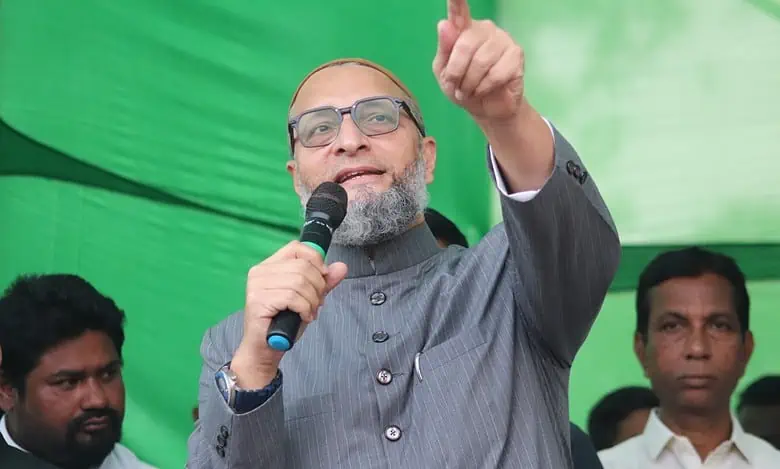As the political landscape heats up, AIMIM leader Asaduddin Owaisi unveils plans to field more candidates from Bihar’s Seemanchal region, marking a significant shift in the party’s electoral strategy.
NEW DELHI– In the midst of preparations for the upcoming Lok Sabha elections, Asaduddin Owaisi, the prominent leader of the All India Majlis-e-Ittehadul Muslimeen (AIMIM), has announced a strategic move to increase the party’s footprint in Bihar’s Seemanchal region, as reported by Siasat. This decision comes as AIMIM seeks to assert its influence beyond its traditional strongholds, signaling a potential reshaping of the political dynamics in the state.
Owaisi’s declaration, captured in a video of his recent address in Bihar, underscores the party’s commitment to broadening its base and addressing the aspirations of diverse communities. The move to field more candidates in Seemanchal aligns with AIMIM’s overarching goal of representing the marginalized and ensuring their voices are heard in the corridors of power.
However, Owaisi’s announcement also comes at a time when the party faces scrutiny and questions, particularly regarding its stance on national issues. According to a report by the Times of India, concerns have been raised over AIMIM’s position on the conferral of the Bharat Ratna award and its response to sensitive matters such as the Babri Masjid dispute. These criticisms highlight the challenges the party may encounter as it seeks to expand its influence beyond its traditional strongholds.
Nonetheless, Owaisi remains steadfast in his vision for AIMIM’s growth and impact on the national stage. In a statement addressing the party’s objectives, he emphasized the importance of representing the aspirations of the marginalized and advocating for their rights in the political arena. This commitment underscores AIMIM’s broader mission of social justice and empowerment, which resonates with many segments of society.
The decision to focus on Bihar’s Seemanchal region is significant for several reasons. Historically marginalized and underrepresented, the area presents a fertile ground for AIMIM to establish a stronger presence and mobilize support from communities seeking meaningful representation. By strategically allocating resources and attention to this region, AIMIM aims to capitalize on emerging opportunities and consolidate its position as a formidable political force.
Moreover, AIMIM’s expansion into Bihar’s Seemanchal region holds implications for the broader political landscape of the state. As traditional alliances and voting patterns evolve, the entry of AIMIM could introduce new dynamics and potentially reshape electoral outcomes. This development underscores the fluidity of Indian politics and the constant quest for parties to adapt and innovate in response to changing realities.
Asaduddin Owaisi’s announcement regarding AIMIM’s plans to field more candidates from Bihar’s Seemanchal region reflects the party’s strategic calculus and its ambitions for broader political relevance. As AIMIM navigates through the intricacies of Indian politics, its foray into new territories underscores the ever-changing nature of electoral dynamics and the imperative for parties to continuously evolve to remain relevant.

